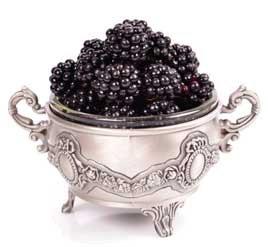




Blackberry -
F

1. Blackberry Facts
2. Types of Blackberries
3. Nutritional Value of Blackberries
4. Health Benefits of Blackberries
2. Types of Blackberries
3. Nutritional Value of Blackberries
4. Health Benefits of Blackberries
Blackberry Facts
History and Origin
Types of Blackberries
Types of Blackberries grown and sold in Australia
Blackberry Nutritional Value
|
Fruit ” Blackberry ” ( Nutritional value )
Nutritional value per 100 g Blackberries, raw |
|||||||||||||||||||||||||||||||||||||||||||||||||||||||||||||||||||||||||||||||||||||||||||||||||||||||||||||||||||||||||||||||||||||||||||||||||||||||||||||
|
Weight of Fruit – 1 cup = 144 g
|
|||||||||||||||||||||||||||||||||||||||||||||||||||||||||||||||||||||||||||||||||||||||||||||||||||||||||||||||||||||||||||||||||||||||||||||||||||||||||||||
|
|||||||||||||||||||||||||||||||||||||||||||||||||||||||||||||||||||||||||||||||||||||||||||||||||||||||||||||||||||||||||||||||||||||||||||||||||||||||||||||

|
Reference Values are based on a 2,000 Calorie Intake, for Adults and Children 4 or More Years of Age. Your daily values may be higher or lower depending on your calorie needs.
|
|
Percentages are roughly approximated using (RDA) Recommended Dietary Allowances for adults. Source: Nutrient Database – USDA (United States Department of Agriculture)
|
|
Reference Values for Nutrition – FDA U.S. Food and Drug Administration
|
Blackberry Nutritional Value
Blackberry Health Benefits
Blackberry

HEALTH
References
For More Information
Blackberry – From Wikipedia, the free encyclopedia
